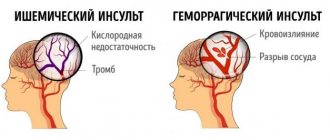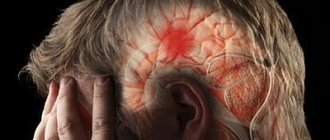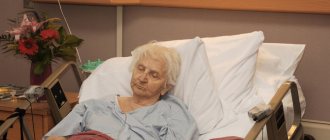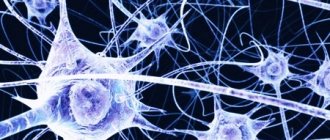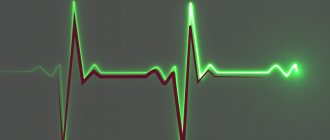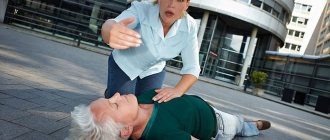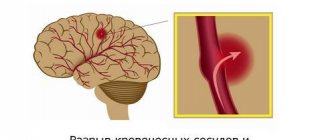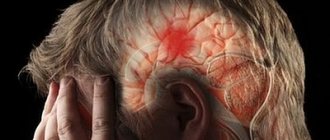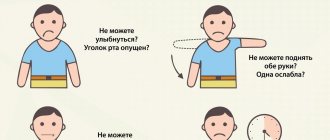Human long-term and short-term memory can be compared to a modern information repository, in which it is easy to find the necessary data.
- Why do memory impairments occur after a stroke?
- What are the manifestations of memory impairment?
- What is the danger of memory loss after a stroke?
- Is memory restored after a stroke?
- How long does it take to recover memory after a stroke?
- Care and recovery after a stroke at the Olympia House nursing home
Relatively speaking, all actions are reproduced by the brain on the basis of collected, processed and applied information, which must be ensured for safety in any situation.
Thanks to active thought processes, a person identifies himself, remembers how to walk and talk, eat and chew. Unfortunately, a disease such as stroke in older people can lead to the loss of certain areas of memory, which leaves a negative imprint on every moment of life after a stroke.
Why do memory impairments occur after a stroke?
The consequence of a blockage or rupture of a vessel is a stroke, and a person can suffer such a condition on his feet without noticing any changes. In some cases, the circulatory system suffers, which cannot deliver oxygen-enriched blood to a certain area of the brain and the cells of the cortex gradually die.
Cellular necrosis and lack of proper medical care remain the main causes of deterioration in health after a stroke. Against the background of such complications, partial or complete paralysis, immobilization of facial muscles and drooping of the corner of the mouth or eye, speech dysfunction and memory loss develop.
If the problem is noticed in a timely manner and qualified recovery after a stroke , it is possible to avoid the consequences. This situation is due to the fact that when a certain part of the brain is inactive, living cells can perform additional functions after a rehabilitation program.
It is impossible to predict the consequences of a stroke, but immediately after diagnosing such a condition, doctors can provide the necessary assistance. And by organizing proper care at home or placing an elderly person in a special rehabilitation boarding house, you can restore all lost body functions.
What to do if memory deteriorates
Coming to terms with memory loss and the development of the disease is difficult. Some try to hide the symptoms, which is why loved ones may not realize the problem for a long time.
If you notice that your memory has deteriorated with age, you will understand better what to do about it if you know the reasons. What causes age-related memory decline? First, the hippocampus, an area of the brain that is involved in the formation and retrieval of memories, declines in function. Secondly, the activity of hormones and proteins that perform a protective and stimulating function for neurons is lost. And thirdly, there is a decrease in blood flow to the brain, which leads to deterioration of memory and cognitive skills.
To be in good shape, our brain, like the whole body, requires care and regular exercise. If you have already noticed memory problems, your doctor will tell you what to do, but you yourself can improve the situation with the help of tips that will help you adapt and maintain brain activity. Please note that in case of cognitive impairment, all problems should be discussed with the family, as the patient will need the help and participation of loved ones.
If your memory is deteriorating, the following list will tell you what to do:
- Continue to participate in daily activities.
- Study regularly, learn new things and do mental exercises such as strategy games, crosswords and puzzles.
- Use support tools like reminder notes, to-do lists, and calendars.
- Find time for friends: many people give up social life when their memory weakens, which is absolutely not allowed. A study from the Harvard School of Public Health found that people with active social lives had the slowest memory decline.
- Always put essential items, such as keys or glasses, in the same place.
- Get plenty of rest: Sleep deprivation reduces the growth of new neurons in the hippocampus.
- Follow a nutritious diet: foods rich in Omega-3 - salmon, tuna, walnuts, broccoli - are especially beneficial for brain activity. But saturated fats and calories should be limited.
- Treat chronic diseases: studies show that diabetes, problems with the cardiovascular system and other somatic pathologies significantly aggravate the decline in attention and memory, which makes the fight against them a must in the fight for brain activity.
- Get rid of bad habits such as alcohol and smoking: they increase the risk of vascular disorders.
- Introduce moderate physical activity into your life - it reduces the risk of developing dementia by up to 50%. Both simple walking and light aerobics, as well as coordination exercises, are good.
- Share your problems with your family. In moments when your memory critically fails, they are the ones who will tell you what to do.
The brain is capable of producing new cells at any age, so significant memory loss is not an inevitable result of aging. Your lifestyle, habits and daily activities have a huge impact on your brain health. Unfortunately, you can only cope with this problem on your own for a certain time. When memory is lost, what should the doctor tell you to do, because only comprehensive treatment can improve the long-term prognosis.
Which doctor should I contact for memory problems?
If a person develops memory impairment, which doctor to contact should be decided as quickly as possible. A full range of diagnostic measures is required to determine what pathology the symptoms are associated with. Not everyone knows which doctor deals with memory. Please note that consultation with several specialists may be required.
Which doctor should I contact if I have memory loss? A psychiatrist, neurologist and neuropsychologist will help you. In some cases, consultation with a general practitioner and geriatrician may be necessary. This is a complex problem that manifests itself on both an organic and psychological level, so their joint work is necessary.
For memory problems, the doctor uses the following diagnostic methods:
- study of anamnesis;
- physical health assessment;
- conversation with relatives: when one of the family members, especially the elderly, begins to experience memory deterioration, the relatives often decide which doctor to see. Their participation in diagnostic and treatment activities can provide significant assistance;
- neurological, psychiatric and psychological assessment;
- psychometric testing: measures the accuracy, speed and quality of mental processes such as decision-making, attention, planning;
- laboratory and instrumental examination: blood tests, MRI scanning, positron emission tomography, electroencephalography and more.
Specialists carefully analyze the patient’s condition, taking into account his behavior and the results of the diagnostic measures performed. If you are thinking about which doctor to contact about memory, it is better to look for a place where several related specialists can work together. It is also necessary to have modern diagnostic equipment - this will allow the results to be more accurate and save time.
Subsequently, the results of diagnostic measures are used to develop a treatment plan. If a person is elderly, but does not yet experience serious memory problems, which doctor to contact should be known in advance - if you are concerned about the possibility of cognitive decline in the future, it is better to conduct a preventive examination. It will help delay or even avoid the development of serious pathology. Having mild cognitive impairment increases the risk of developing Alzheimer's disease and other forms of dementia.
In case of poor memory, which doctor to see and which institution to go to, everyone decides for themselves: it can be a state psychoneurological dispensary and a clinic at the place of residence, or a private specialized center. Unfortunately, in government institutions you will have to spend too much time, the loss of which is dangerous during the active involutionary process of the brain. Also, doctors there are too busy to pay enough attention to patients. If you have memory problems, which doctor will help you better can be determined from his work experience, level of qualifications and status of the clinic.
What are the manifestations of memory impairment?
Modern medicine proposes to consider human memory on the basis of two components that play an important role in its formation. These are short-term and long-term memory, responsible for the safety of ever-memorized information used in mental processes.
After a stroke, memory loss of various types can be diagnosed, and after such a diagnosis, the recovery process can begin with an individual selection of techniques:
- verbal memory impairment;
- visual memory disorders;
- loss of motor skills;
- disturbances of emotional-figurative memory.
The most complex and difficult to recover cases include vascular dementia, which cannot be cured. Such a diagnosis cannot be considered as a death sentence, although elderly people with dementia after a stroke completely lose adequate perception of the surrounding reality. With a properly selected course of rehabilitation and well-carried out recovery, it is possible to slow down the process of deterioration of a person’s condition and adapt it to reality.
Brain training and memory skills
Experts answering the question: how to restore memory, say that it needs to be trained regularly. Moreover, those who are horrified by such a procedure do it completely in vain. After all, the training is quite simple and does not require any special effort.
So an excellent option, which can be characterized as treatment, is the usual memorization of texts. Prose, poetry - it doesn’t matter at all what exactly you try to remember. However, it is worth understanding that simple memorization is not enough here. The text must be carefully read, broken down into images, thought about, evaluated, and given certain anchors to these images. Then memorization will go faster and better.
You can also treat memory with associations. The principle of this method is quite simple. We must act as in the fairy tale about the rainbow and the hunter, when each color is assigned a specific word. This method is good for memorizing rules, mathematical formulas (for example, Pythagorean pants illustrate this technique very well) and much more. It is entirely possible to use both ready-made association options and select your own.
An excellent solution to the problem would be the photography method. It is enough to sit down, relax, choose an object and look at it intently for about 5 seconds. For the next 5 seconds, close your eyes and bring to mind the image that you just “photographed.” It is best to perform treatment with this method several times a day, choosing different objects to remember.
You can also treat memory gaps with the help of smells. Scientists have long proven that smell is one of the most powerful memory tools. With its help, it is quite possible to recall even the deepest memories. So, scientists say that if you study certain information and at the same time inhale a certain aroma, for example, toothpaste, and then take it with you to the exam and inhale a little, this will trigger active memories.
What is the danger of memory loss after a stroke?
The extent of the destructive impact of a stroke on the memory of an elderly person is difficult to assess without an accurate diagnosis. It depends on the intensity and area of hemorrhage or the number of dead cells in a certain hemisphere of the brain, so rehabilitation procedures should be started immediately.
The problem of memory loss manifests itself in the difficulties faced by older people who cannot identify themselves. They do not remember their childhood and adolescence, they lose their walking skills and coordination of movements, they do not understand how to eat or carry out basic hygiene.
Another dangerous point is psychological discomfort, depression and anxiety in older people. After memory loss, an elderly person sees unknown people and unfamiliar objects around him; everything seems alien and frightening to him, which can cause psycho-emotional breakdowns.
Kinds
By its nature, memory loss can be divided into several groups:
- Short-term.
- Constant.
- Sudden.
- Gradual.
Sometimes a person cannot remember what happened to him 1-2 days ago, but he remembers perfectly well what happened a year or even two years ago. Global amnesia is a rare concept that people have to deal with. That is, a person loses his memory, but it soon returns. If we are talking about anterograde amnesia, then it is difficult for a person to remember events that happened to him recently. But there are certain reasons for this, for example, an accident or some kind of incident.
Retrograde amnesia does not allow a person to remember the events that happened to him shortly before memory loss, but he remembers events that happened to him several years ago very well.
As practice shows, short-term memory loss occurs due to a blow to the head. After which the person quickly comes to his senses. Basically, this does not leave any consequences, but a person may develop complexes or develop psychological problems that need treatment.
Is memory restored after a stroke?
Destroyed neural connections can be restored and this will provide the opportunity to partially or completely restore a person’s memory.
But for this it is necessary to create optimal conditions and develop a set of techniques, regularly conduct classes and monitor the current state of health of an elderly person:
- systematic memory training and activation of thought processes;
- drug therapy using memory improving drugs;
- using intellectual games and exercises to strengthen memory.
Classes and exercises should not overload the brain; in a person’s life it is important to find time for rest and entertainment. A specialized private boarding house for the elderly in the Moscow region offers unique and individually adaptable rehabilitation program complexes for people who have suffered a stroke.
How long does it take to recover memory after a stroke?
Rehabilitation procedures after a stroke carried out by specialists at our private boarding houses include an integrated approach. This means that in addition to memory restoration, psychologists work with patients to help stabilize their psycho-emotional state and return to normal life.
The process of memory restoration and its duration depend solely on the diagnosis and the degree of destruction of the neural network. It is very important that the patient immediately after a stroke begins to undergo a rehabilitation course and follows all the doctor’s instructions so that the changes become reversible.
Having lost memory and part of cognitive abilities, a person feels disoriented and often becomes depressed. For older people, it is important to organize optimal conditions for therapy and create comfortable psychological conditions under which rehabilitation will be as effective as possible.
Diet to improve memory
Most often, to begin with, it is suggested to treat memory with nutritional correction. It has been proven that those who diet and deprive themselves of many nutrients suffer from problems with concentration and note a decrease in memory abilities.
Experts advise adding more foods containing vitamin E to your diet. These help restore nerve cells, ensure proper nutrition of the brain, and normalize the state of the nervous system. Treating the brain with products is quite simple. You just need to include eggs, seeds and nuts, bran bread, cereals, and green leafy vegetables in your diet. You should also take care to increase the diversity of your diet with seafood, which contains a lot of iodine.
To improve brain function, it is worth adding foods rich in zinc to your diet. Of course, treatment of this kind will be many times more pleasant than one that requires you to swallow pills.
Care and recovery after a stroke at the Olympia House nursing home
The rehabilitation programs used by our specialists include all the necessary measures to restore memory and cognitive processes.
Olympia House, a network of private boarding houses for the elderly, specializes in providing quality medical services for residents:
- compliance with the conditions of therapy and rehabilitation;
- psychological comfort and calm environment;
- constant supervision by experienced caregivers;
- assistance in hygiene procedures, feeding;
- Qualified doctors work with patients.
During rehabilitation and socialization, qualified psychologists actively work with elderly people living in boarding houses. We maintain a friendly and relaxed environment, provide leisure activities and experienced staff to provide assistance to people in dire need.
A stroke in old age can be suffered on the legs, but lack of treatment and rehabilitation can lead to the development of various consequences. Our network of boarding houses provides high-quality and targeted care for the elderly in Moscow and provides individual rehabilitation services for residents.
